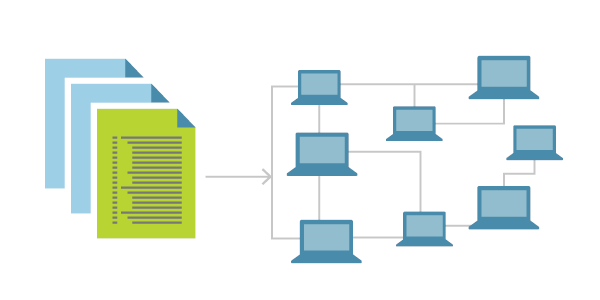Effective communication is essential for high-quality software development. Traditional practices often create team barriers, leading to delays, issues, and unhappy customers.
Promoting seamless collaboration among development, testing, and operations teams is vital to overcome this. By encouraging open communication, organizations can achieve better results and deliver software that meets customer expectations.
This is where DevTestOps comes in to transform your software development lifecycle completely. It combines the forces of DevOps and Continuous Testing (TestOps) to provide superior software testing.
You can break through those barriers and create a unified, collaborative atmosphere by utilizing DevTestOps. It unifies development, testing, and operations into a single workflow, allowing continuous feedback, rapid iteration, and improved software quality.
You will see shorter deployment cycles, fewer problems, and higher product value. This blog will provide an overview of the implementation, and benefits of DevTestOps, providing you with actionable solutions to deploy it correctly.
What is DevTestOps?
In simple words, DevTestOps can be explained as a combination of DevOps and TestOps by including continuous testing in the DevOps process. It aims to bring Development, Operations, and Testing teams together and work to create high-quality software.
To understand DevTestOps better, let’s go through DevOps and TestOps first.
DevOps
DevOps is a collaborative software delivery method that combines development and operations teams. It tries to break through typical team silos, promoting greater collaboration, faster delivery, and increased agility.
DevOps provides continuous integration, delivery, and deployment by merging their efforts, guaranteeing that your software is produced, tested, and delivered efficiently.

TestOps
TestOps, on the other hand, focuses solely on optimizing the testing part of the software development lifecycle.
It acknowledges that testing is critical to assuring software quality and emphasizes the importance of specialized testing teams, robust test automation, and efficient test administration.
TestOps seeks to automate testing processes, increase test coverage, and offer rapid feedback on software quality, allowing you to discover and resolve issues as they arise.
DevTestOps
DevTestOps, or Development Testing Operations, is a comprehensive strategy combining DevOps with continuous testing to improve software quality across the development lifecycle.

It recognizes the importance of testing in developing high-quality software and focuses on smoothly incorporating testing into the development process.
This development-testing-operations combination solves the issue of traditional development (testing a software at the end of the development cycle) and testing methods' fragmented nature.
Many organizations split development and testing teams, resulting in communication gaps, slower feedback loops, and delays in discovering and resolving issues.
This disjointed approach frequently leads to lower software quality, longer development cycles, and longer time-to-market. DevTestOps' answer is to break down these barriers and create a collaborative and interconnected ecosystem.
It guarantees that quality is incorporated into the product from the beginning by engaging in testing activities in the early stages of development.
It also encourages the use of automated testing tools and frameworks, as well as continuous integration and testing practices, to provide faster feedback and find bugs earlier.
You can handle software quality concerns proactively using Development Testing Operations, detect and repair errors early in the development process, and ultimately deliver higher-quality software to your users.
Implementing DevTestOps for Better Software Quality
We can help you with the challenging task of implementing DevTestOps. Although there isn't a 'set' technique to implement, it can vary depending on the needs of the product. So we'll talk about the fundamental approach to take in order to achieve the best software quality.
Let’s get into the details:
Establishing a collaborative culture and communication channels

The development, testing, and operations teams must work closely and communicate clearly to implement DevTestOps. Encourage team members to cooperate towards common objectives, share knowledge and skills, and eliminate departmental silos.
Organize regular meetings, problem trackers, and chat platforms as communication channels to promote effective information sharing and collaboration.
Automating build, test, and deployment processes
Automating build, test, and deployment processes reduces manual errors, saves time, and boosts efficiency. To automate the compilation, packaging, and deployment of code changes, use build automation tools such as Jenkins or Azure DevOps.
This assures consistent and dependable build outcomes while also shortening the development cycle.
Leveraging continuous integration and continuous delivery (CI/CD) pipelines

Implement CI/CD pipelines to automate code integration, testing, and delivery. Developers use CI to merge their code into a shared repository on a regular basis, triggering automatic builds and tests.
This enables early discovery of integration difficulties and encourages a culture of steady code integration. CD automates software distribution to diverse settings, eliminating manual work and allowing faster and more reliable deployments.
You can ensure that changes are adequately tested and quickly deployed to production by employing CI/CD workflows.
Integrating testing early and continuously throughout the development cycle
In DevTestOps, testing should be an essential part of the entire development cycle. Begin early with unit tests to validate individual components.
Then, execute integration tests to evaluate interactions between different modules, followed by system tests to assure end-to-end functionality. Run automated tests continuously as code updates are done to discover bugs early and prevent regression issues.
By incorporating testing throughout the development cycle, you may quickly detect and resolve issues, ensuring high software quality.
Establish Effective Incident and Defect Management Processes
Create effective systems for managing incidents and defects to quickly resolve problems during the development, testing, and production phases. Establish a centralized system for recording and monitoring incidents, flaws, and their fixes.
Establish distinct processes for prioritization and escalation to guarantee prompt response and resolution. Effective incident and defect management contributes to lower downtime, more customer satisfaction, and ongoing software quality improvement.
Using infrastructure as code (IaC) for consistent and reliable environments

Implement IaC, which allows for the programmatic definition and provisioning of infrastructure resources. This enables uniform and reproducible environments throughout the development and testing processes.
To automate the development and setup of infrastructure resources, use tools like CloudFormation or Terraform.
You can quickly replicate environments and version-control changes and ensure the essential infrastructure is in place for testing and deployment by managing infrastructure as code (IaC).
Foster a Culture of Continuous Learning and Improvement
Encourage the DevTestOps teams to adopt a culture of ongoing learning and development. Promote knowledge sharing, conduct regular retrospectives, and have an experimental and innovative approach.
Encourage your team to stay current on emerging technology, trends, and best practices. Give possibilities for education and career advancement.
You may be wondering why I even need to implement DevTestOps at this point. Let's have a look at its advantages so you can make your own decision.
Benefits of Implementing DevTestOps
There are multiple reasons why software teams should adopt DevTestOps. Here we will discuss five of them:
Accelerated Time-to-Market
You can accelerate collaboration, automate activities, and streamline your development process by employing it. As a result, high-quality software is delivered more quickly, giving you an advantage over rivals and the chance to exploit market possibilities.
Improved Software Quality
This methodology focuses on early defect detection and ongoing testing. You can detect and address problems early on by incorporating testing throughout the development cycle, ensuring stable and dependable software delivery to end users.
Collaboration and Communication
A collaborative culture is encouraged by bringing together the testing, operations, and development teams. This makes effective communication, knowledge exchange, and goal alignment possible, enhancing productivity.
Better Efficiency and Productivity
Automating time-consuming and repetitive procedures frees developers and testers up crucial time. They can concentrate on important activities because of this, lowering manual errors and increasing productivity.
Cost Saving
Process automation and removing pointless manual actions improve resource efficiency and cut waste. This results in cost reductions in infrastructure, resources, and time, ultimately enhancing software development initiatives' return on investment (ROI).
Leveraging a comprehensive test management solution like Allure TestOps can be a game changer in quickly reaping the benefits of DevTestOps and empowering your testing practices.
Allure TestOps, with its agile testing capabilities and robust features, enables organizations to simplify their software development process by improving collaboration and obtaining ideal testing results. Let’s dig deeper into what it is and how it works.
Allure TestOps: The Key to Implementing DevTestOps

Allure TestOps is an innovative test management tool that will transform your testing practices. It efficiently combines the principles of DevOps and agile testing, providing a comprehensive solution that integrates testing into the software development lifecycle.
This all-in-one solution enables you to seamlessly organize, track, and analyze your tests, ensuring transparency and efficiency along your Development Testing Operations journey.
It enables you to simplify test execution, monitor progress in real-time, and receive actionable insights into the quality of your software through its straightforward UI and strong functionality.
Allure TestOps is a helpful tool that allows you to optimize your testing efforts and achieve improved software quality.
Allure Report is a versatile, lightweight, multilingual test report tool that gives you the ability to produce eye-catching, thorough testing reports.
Allure Report effortlessly integrates with various testing frameworks and continuous integration (CI) systems, whether you're testing in Java, Python, JavaScript,.NET, or other programming languages.
The opportunity to customize your reports using the available API is provided, along with comprehensive testing insights, layered phases for clear data display, and more.
You can quickly filter, search, and export your test cases using Allure Report, enabling a flawless testing process and giving you helpful information to raise the quality of your program.
Features
From smart test cases to RBAC, Allure TestOps is your go-to solution for achieving better software quality. Let's dig into the remarkable features that make Allure TestOps the ultimate reporting tool in the DevTestOps landscape.
Smart Test Cases
Manual test case updates are no longer necessary. Smart Test Cases dynamically change your test documentation based on test run outcomes. Maintain your test cases in sync with the most recent test execution data easily.
Centralized Test Hub
Allure TestOps acts as a central point for all of your manual and automated tests. It increases your team's productivity and boosts your CI/CD pipeline. Gain immediate visibility into your test coverage and ensure thorough testing.
Configuration Flexibility
Use the comprehensive REST API and Allure Query Language to access and alter your test data. You can configure Allure TestOps to meet your individual needs and testing operations.
Scalable
Allure TestOps expands effortlessly to meet any testing demand. You can run tests smoothly and efficiently whether you have 1,000 or 1,000,000 test cases.
Seamless Integration
Allure TestOps integrates natively with common test automation, continuous integration/continuous delivery, and issue-tracking frameworks. Take advantage of seamless connectivity and existing technologies in your testing ecosystem.
Enterprise-level Security
With enterprise-level security features, you can rest easy. To secure the safety and integrity of your testing data, Allure TestOps offers role-based access control (RBAC), single sign-on (SSO), API tokens, and extensive audit logs.
Allure TestOps is your trusted companion on the path to achieving DevTestOps excellence. Now let’s have a look at its pricing.
Pricing
Allure TestOps offers you two plans- Cloud and Server. Pick your plan and try it for yourself without committing to anything; you don’t need a credit card to sign up for the free trial.
Cloud
- Hosted on Allure's infrastructure.
- $39/ month per user or fewer.
- Secure AWS hosting.
- 60 GB storage included.
- Monthly or annual billing.
- From 1 user.
- Get 14-day free trial.
Server
- Hosted in-house.
- $30/ month per user or fewer.
- Full control over your instance.
- Private services integration.
- Quarterly or annual billing.
- From 5 users.
- Get 30-day free trial.
Conclusion
Adopting DevTestOps is critical for improving software quality. You can optimize your development lifecycle and provide high-quality software that meets user expectations by encouraging collaboration, automation, and continuous testing.
It allows your teams to collaborate more effectively, detect and fix issues earlier, and ensure consistent and dependable software releases. It enables you to improve operations, increase efficiency, and provide users with superior software experiences.
Consider exploring Allure TestOps to realize DevTestOps' full potential. You can speed up your CI/CD pipeline, increase the effectiveness of your testing procedures, and provide software of the highest caliber by using Allure TestOps.
Try Allure TestOps and watch your software quality improve drastically!



